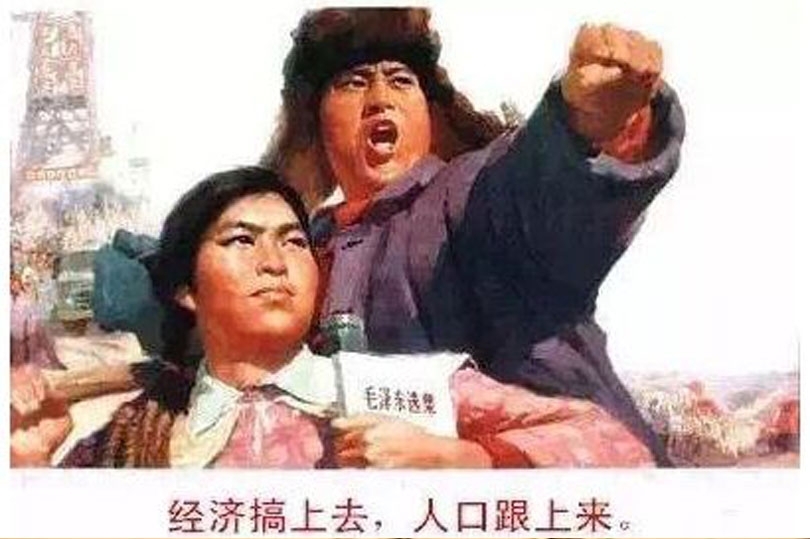As the two-child policy, that came into force on 1st January, 2016, ends the era of one child per family and allow all couples to have two children, it has been a hot issue discussed by all Chinese, especially among the crowd of post-70s.
Yet, different age groups, such as the post-80s and post-90s, show quite divergent perspectives on the question of whether or not to rear the second child.
A local community website in Nanjing, Xici, did an investigation on 22nd June which showed that nearly 90 percent of participants said they would choose not to have a second child. Most of the 4,400 participants were post-70s or post-80s. Great economic pressure and the burden of raising children ranked highest among the reasons that they did not want to follow the newly published policy. A netizen named “Supergirl in red” said, “The life stress is too big and the quality of life people now pursue is not like that emerged in the old generation’s thoughts… What we want is to be ourselves, not to live a whole life for children.” Another netizen called “Have my hair cut” also expressed that she did not have sufficient vigor to parent a second child because she was excessively tiried during the process of caring for her 3-year old son.
Huang Xiaowei and his wife (who was unwilling to reveal her name), a couple who took their 4-year-old son with them to have lunch at Deji Square, told of similar opinions that they would not try to raise a second child due to greater and greater economic stress. “My wife and I are both post 1980s. Just as you know, we’re the first generation growing up under the implementation of the one-child policy, so it’s obvious that we’re the only children in our families,” said Mr. Huang. “It means that we have to raise our parents; four old people at the same time! And what troubles us is more than that; the high expense of education and the preparation for our son’s marriage. We must get all the things, at least a set of a two-room flat and a car, ready before he gets married. You know, it’s a Chinese tradition.” Ms. Xu Lin, who has two sons, said that she was a little regretful to raise two kids. “Someone may be envious that I have two children, but the fact is my husband is too busy to help looking after them because he often goes on business trips and the burden (of caring for sons) belongs to me. So I and their [two sons’] grandparents decided to send the bigger brother to a boarding primary school. He started to get accommodation since the age of six.”
Although the official position remains that the two-child policy can improve the balanced development of population, optimize the demographic structure, increase labour supply, ease pressure on the aging population and help improve the health of the economy, most post-70s or post-80s Chinese have rejected opportunities in the past (for instance, in rural areas, families were allowed to have two children if the first was a girl, or you could have a second child by incurring a fine and other exceptions included ethnic minorities and, since 2013, couples where at least one was a single child) to have a second child based on family conditions, income level, reproductive elements and many other factors. In the meantime, the post 90s generation shows a relatively positive attitude towards the issue. A survey done by the daily Shenyang Evening News indicates that post 90s are more willing and eager than post 80s to have a second child. More than 70 percent of respondents said that bringing up two children is the ideal while their additional aim is to raise both a son and a daughter.
The very same phenomenon was observed in Nanjing University. In an interview sampling 34 random students walking on a main road in the Xianlin Campus, 21 said they would like to rear two children after marriage. Two showed a willingness to have one child, four said they did not want to raise kids and the rest expressed uncertainty. Most of them remarked that due to the one-child policy, most post 90s are the only child in the family and lack blood companions with whom to grow up. “I think that only by having at least two kids in a nuclear family can we live a happy life. If possible, I’d like to bring up three. The more, the better. It’s too lonely to grow up as the only child,” said Sha Mu, a junior student who is an only child.
Professor Feng Xiaotian, a sociologist and doctoral supervisor from Nanjing University, explained this phenomenon from both the materialistic and mental aspect. “The post 80s experienced the economic pressure and recognized real difficulties they must face in society. But most post 90s are still on campus so they can’t know the exact situation of the true lives they will live after graduation. From this perspective, the thoughts that post 90s obtain are more idealistic and post 80s relatively rational in this case. But what you can’t determine is whether the post 90s will always hold the same attitude. They may change ideas after working or getting married,” said Feng. Meanwhile, He added that there is no exact research on this phenomenon now, so no certain conclusion can be drawn under current circumstances.
In many ways, the fate of the two child policy is sealed in that no one can figure out the exact reproduction trend in the future. Due to the noncommittal economic orientation and fast-paced life, couples from one-child families who need to support four old people at the same time are faced with great stresses both materially and mentally. Whether post-80s and 90s, the only generations born as only children, will follow the two-child policy remains for now an unknown.











